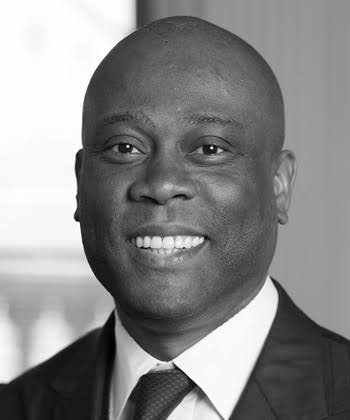Brands
Access Bank sets industry abuzz with H1 result

•Grows profit by 61 per cent, pays 25k dividend
By OKEY ONYENWEAKU
Access Bank Plc has beat industry expectations in half year (H1) 2019 with a super growth in profit by 61 percent for the period ended June 30, 2019. The biggest bank by assets raised industry standards with dumbfounding performance after what seemed like a hectic merger enterprise at one of the most difficult times when businesses are struggling for survival.
As the lender released its audited H1-19 numbers on the floor of the Nigerian Stock Exchange (NSE) over the weekend, industry watchers noticed the strong gross earnings which jumped 28 per cent from N253.04billion in 2018 to N324.37billion in 2019.
Profit before tax also rose significantly by 61.7 per cent from N45.842billion to N74.115billion in 2019.
This high performance at a time of low profit margins was fueled by strong net interest income which grew 81.8 percent and growth in net fee and commission that rose significantly by 24.8 from N30.066billion in 2018 to N37.529billion in 2019.
Whereas the growth numbers in the Nigerian economy slipped in the second quarter to 1.9 per cent, weakening the chances of strong performance in businesses, Access Bank was able to reward shareholders with N0.25 per share.
Commenting on the result, Group Managing Director/CEO, Herbert Wigwe said, “Access Bank’s performance in the first half of the year reflects a sustainable business model coupled with effective execution as we make solid gains towards the achievement of our strategic goals”
Following the release of the half year results, the Bank also declared an interim dividend of 25k to its shareholders.
“Our focus on retail gained momentum during the period, as continued investments in our channels platform resulted in a 29% contribution to gross fee and commission income, up 92% from the corresponding period in 2018. The strong retail contribution demonstrates the effectiveness of our continued drive around low-cost deposits, on the back of an innovative digital platform. Asset quality improved as guided, to 6.4% on the bank of a robust risk management approach. This is expected to trend into the future as we strive to hit and surpass the standard we had built in the industry prior to the merger. Similarly, liquidity ratio improved year on year to 49.7%, reflecting deliberate steps to optimise our balance sheet in order to ensure the group’s liquidity position remains robust,” Wigwe added.
At the end of H1-19, Access Bank’s operating expenses increased substantially during the period by 28.9% y/y to NGN123.30 billion.
This, according to analysts at Cordros research was driven by, ‘’ a combination of increases in (1) AMCON levy (+29.4% y/y) given the expansion in the bank’s assets base (+31.0% y/y to NGN6.49 trillion), (2) Professional fees (+325.1% y/y to NGN4.84 billion) related to the business consolidation with Diamond, (3) Personnel expenses (+19.8% y/y to NGN31.5 billion) also related to the larger entity, as well as other ancillary costs. However, despite the expansion in operating expenses, the bank’s cost-to-income ratio (after accounting for LLEs) moderated to 62.5% from 68.2% in the corresponding period of the prior year.’’
The analysts also explained, ‘’The macro-prudential ratios remained strong, save for the bank’s NPL of 6.4% which remains above the statutory level but has trended downward from the 10.0% recorded in Q1-19. The bank’s capital adequacy ratio of 20.8% remains well above the statutory limit for D-SIBs (16.0%), while the bank’s liquidity level of 49.7% also remains well above the limit. While the bank has significant headroom to drive growth given the macro-prudential ratios, we expect more focus on the remediation to bring NPLs downwards.’’
Underscoring the fact that the Access Bank performance may indeed be an outlier event, a Lagos based analyst, Mr. Johnson Chukwu who is the Group CEO, Cowry Asset Management Company Limited had told Business Hallmark that banks cannot perform magic in an economy that has been in a very slow recovery phase. According to him, “we also have seen a heightened level of insecurity which is negatively affecting the level of economic activities in the country. Again the banks are being buffeted by some of the regulatory directives that impinge on their performance.’’
On his part, the Group Managing Director, Afrinvest West Africa Limited, Mr. Ike Chioke, had equally told Business Hallmark that it would be fool hardy to expect improved top and bottom lines in an economy that is down.
‘’When there is massive insecurity, companies that you ordinarily think are not affected might find out that their distribution lines are cut. They can no longer go to areas they used to. That means there will be reduction in their income. Consequentially, when that income reduces, the money being aggregated in the banks is reducing. And of course, for capital market operators, the money available for us to invest or manage is much reduced. So, we are all feeling the impact of a difficult economy’’, Ike Chioke said.
He also painted a gloomy picture of the economy and how it affects businesses in Nigeria. He explained,
‘’Well, like every other company in Nigeria we are a victim of the environment. It’s like a ship in the sea. If the sea is calm and benign you can sail more swiftly. And you can get to your destination quicker. But if the sea is rough and turbulent, you would be struggling to move. You are afloat but you may not be moving or making much gain. So Afrinvest, like many other companies in Nigeria, is suffering from the general slower-than-normal economic growth rate.’’
It is to its credit then that Access Bank defied these fears in addition to even more specific fears that its combination with Diamond Bank was going to very likely lead to an uncomfortable future. The in fact, proved many wrong with its impressive and improved performance in the half year 2019 showing.
More fundamentally however, the new Access Bank upsurge is not coming to many industry pundits as a surprise. At the formal event to announce the merger process and unveil the brand identity of the new Access Bank on March 31, speakers, including the trio of Africa’s richest man, Aliko Dangote, GTB founder, Fola Adeola and former Central Bank of Nigeria Governor and present Emir of Kano, HRM Mohammed Sanusi, had affirmed that given their long-term knowledge and interaction with the principal drivers of Brand Access Bank, they were indeed not surprised by the merger move. They also said that they had no fears that the current merger scheme would work out well in the final analysis and that the bank would continue to grow from strength to strength. They may indeed have been spot on.










